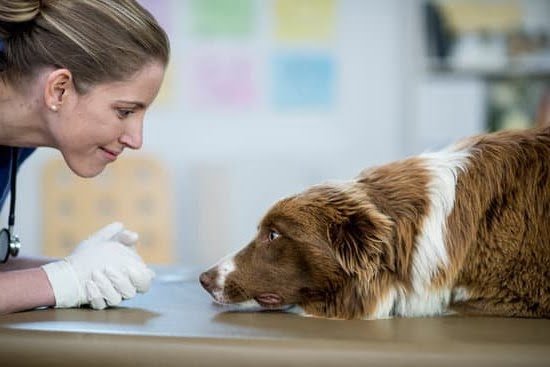Are you interested in pursuing a career as a police dog trainer? Wondering how to become one? Police dogs play a crucial role in law enforcement, and their training is essential for ensuring their effectiveness in the field. A dog trainer for the police is responsible for imparting the necessary skills and behavior to these canines, shaping them into valuable assets for crime detection and apprehension.
The demand for highly trained police dogs has been rising due to the increasing need for effective law enforcement. As such, the role of a dog trainer in law enforcement has become more significant than ever. In this article, we will delve into the skills, qualifications, and experiences needed to become a successful police dog trainer.
To excel in this field, one must possess not only an understanding of canine behavior but also insight into the demands of working with law enforcement agencies. Furthermore, building a strong foundation through basic obedience training and specialized programs is essential for every aspiring police dog trainer. Additionally, developing effective communication techniques and gaining practical experience are vital components of becoming proficient in this occupation. Stay tuned as we explore all these aspects and more in detail.
Skills and Qualifications
Becoming a dog trainer for the police requires a unique set of skills and qualifications. In addition to a genuine love for dogs, aspiring police dog trainers need to possess the necessary experience and education to succeed in this specialized field.
Most police departments and law enforcement agencies require individuals interested in becoming K-9 dog trainers to have prior experience working with dogs, whether it be in the military, as a civilian dog trainer, or as a law enforcement officer.
Furthermore, obtaining certifications and completing training programs specific to police dog training is crucial for anyone looking to pursue this career path. Some of the most recognized certifications include those from organizations such as the National Association of Professional Canine Handlers (NAPCH), North American Police Work Dog Association (NAPWDA), and National Police Canine Association (NPCA).
These certifications not only showcase an individual’s expertise and knowledge in police dog training but also provide essential networking opportunities within the law enforcement community.
Another important aspect of becoming a successful police dog trainer is understanding the demands and challenges of working with law enforcement K-9 units. This includes having a deep appreciation for the unique mindset and temperament required for training and handling police dogs. It also involves being aware of the rigorous physical demands that come with the job, as well as being prepared to work in high-pressure situations where quick thinking and sound decision-making are paramount.
| Skills | Qualifications |
|---|---|
| Prior experience working with dogs | Certifications from NAPCH, NAPWDA, NPCA |
| Understanding the mindset and temperament required for police dog training | Completion of specific training programs for police dog training |
Understanding Police Work
Mindset and Temperament
Becoming a dog trainer for the police requires not only a deep understanding of canine behavior and training techniques but also a keen insight into the world of law enforcement. A key aspect of this role is having the right mindset and temperament to work effectively in high-pressure situations.
Police dog trainers must be able to remain calm and focused, even in the face of danger or chaos. They need to possess strong leadership qualities as they are responsible for shaping the behavior and skills of these K-9 officers.
The Demands and Challenges
Working as a police dog trainer comes with its own set of demands and challenges. Trainers must be prepared to work irregular hours, including nights and weekends, to accommodate the needs of law enforcement agencies. Additionally, they must be physically fit and capable of handling large, powerful dogs. The job also entails exposure to potentially dangerous situations, so having a thorough understanding of safety protocols is essential.
Building Trust With Law Enforcement
In order to be successful in this field, it’s crucial for dog trainers to establish a strong working relationship with law enforcement officers. Understanding the dynamics within a police force and being able to communicate effectively with handlers is vital for ensuring that K-9 units function seamlessly.
Trainers must have an appreciation for the important role that police dogs play in maintaining public safety and be able to align their training methods with the specific needs of each department.
Building a Strong Foundation
Becoming a dog trainer for the police requires a strong foundation in basic obedience and specialized training for scent detection and apprehension. Police dogs play a critical role in law enforcement, and it is essential for their trainers to have the necessary skills and knowledge to effectively train them for their important tasks. Here are some key components of building a strong foundation as a police dog trainer:
- Basic obedience training: As a police dog trainer, it is crucial to have a solid understanding of basic obedience training techniques. This includes teaching dogs to follow commands such as sit, stay, heel, and come when called. These foundational skills are essential for instilling discipline and control in police dogs.
- Specialized training for scent detection and apprehension: In addition to basic obedience training, police dog trainers must also be well-versed in specialized training methods for scent detection and apprehension. This includes teaching dogs how to track scents, locate evidence, and apprehend suspects when necessary.
This combination of basic obedience and specialized training provides the groundwork for a successful career as a police dog trainer. By mastering these fundamental principles, aspiring trainers can prepare themselves for the unique challenges of working with police dogs.
Furthermore, gaining practical experience in the field is essential for building a strong foundation as a police dog trainer. This hands-on experience allows trainers to apply their knowledge in real-life scenarios and develop the skills needed to effectively work with law enforcement agencies and K-9 units.
Ultimately, by focusing on building a strong foundation in basic obedience, specialized training, and gaining practical experience, individuals can take the necessary steps towards becoming successful police dog trainers.
Plese note: I noticed that “become” had been spelt incorrectly. A corrected spelling would read “become”.
Developing a Partnership
Building a strong foundation for training police dogs begins with establishing a partnership based on trust and respect. Police dogs need to have complete confidence in their trainers in order to perform their duties effectively. This means that as a dog trainer for the police, you must be able to demonstrate your leadership and reliability to the dogs under your care. Establishing a strong bond with the dogs is crucial for successful training outcomes.
Techniques for Effective Communication and Rapport-Building With Police Dogs
Effective communication is essential when training police dogs. As a dog trainer for the police, it is important to understand how to communicate with the animals using both verbal commands and non-verbal cues.
Building rapport with the dogs involves understanding their body language, behavior, and responses, in addition to being consistent and patient throughout the training process. By utilizing positive reinforcement techniques and understanding each dog’s individual personality, you can foster a stronger partnership between yourself and the canine officers.
Gaining Practical Experience
Gaining Practical Experience in the Field
In order to become a proficient dog trainer for law enforcement agencies, gaining practical experience in working with police dogs is essential. This may involve apprenticing or interning with experienced K-9 unit trainers or law enforcement agencies. The hands-on experience gained from working directly with police dogs will allow you to apply your knowledge of basic obedience training and specialized skills such as scent detection and apprehension in real-world situations.
Working With Law Enforcement Agencies and K-9 Units
Engaging with law enforcement agencies and their K-9 units provides invaluable exposure to different aspects of police work. It offers insight into handling high-pressure situations, emergency response protocols, and collaboration within a team environment. Additionally, observing how police officers interact with their canine partners can help you better understand the unique demands placed on these special working animals.
Aspiring professionals who are interested in pursuing a career as a dog trainer for the police will benefit from seeking out these opportunities for real-world experience in preparation for this challenging yet rewarding profession.
Hands-on Experience
Becoming a police dog trainer requires a combination of practical experience and specialized skills. But how do you become a dog trainer for the police? This section will delve into the importance of hands-on experience in this field, as well as the necessary steps to gain practical training.
Obtaining hands-on experience in police dog training is crucial for those aspiring to enter this career path. One of the first steps is to seek opportunities to work with and observe experienced police dog trainers. Many law enforcement agencies and K-9 units offer volunteer or internship programs that allow individuals to gain valuable insight into the day-to-day responsibilities of a police dog trainer.
Another avenue for gaining hands-on experience is through formal apprenticeship programs or entry-level positions within law enforcement agencies. These roles provide aspiring dog trainers with the opportunity to work directly with police dogs under the guidance of seasoned professionals. It is during this hands-on training that individuals can begin developing their skills in obedience training, scent detection, apprehension techniques, and understanding canine behavior.
In addition to practical experience, aspiring police dog trainers should consider pursuing formal education and certification programs specifically tailored to K-9 training. These programs often include coursework in canine behavior, learning theory, animal ethics, and best practices in police dog handling. By combining hands-on experience with formal education, individuals can build a strong foundation for a successful career as a police dog trainer.
| Police Dog Training Experience | Necessary Steps |
|---|---|
| Observing experienced trainers | Seek volunteer or internship programs at law enforcement agencies or K-9 units |
| Formal apprenticeship programs | Gain practical training under supervision of seasoned professionals |
| Educational programs | Pursue formal education and certification in K-9 training through specialized courses |
Handling High-Pressure Situations
Police dog trainers are required to handle high-pressure situations on a regular basis. Whether it’s training for real-life scenarios or dealing with emergency situations, the ability to remain composed and in control is crucial for success in this line of work. Here are some key points on how police dog trainers handle high-pressure situations:
- Training for real-life scenarios and emergency situations is an essential part of becoming a successful police dog trainer. This may involve simulating various law enforcement scenarios such as suspect apprehension, building searches, and crowd control. Trainers must be able to adapt quickly to different situations and provide effective guidance to their K-9 partners.
- Maintaining composure and control during high-stress events is a skill that all police dog trainers must possess. The ability to stay focused under pressure, make quick decisions, and effectively communicate with the police dog is vital in ensuring the safety and success of law enforcement operations.
Handling high-pressure situations as a police dog trainer requires continual training, practice, and dedication to the job. Trainers must be prepared to face challenging circumstances, both during training exercises and in real-world law enforcement operations. By honing their skills and staying updated on the latest techniques and best practices in police dog training, trainers can effectively handle any high-pressure situation that comes their way.
Ultimately, the ability to handle high-pressure situations is an essential aspect of being a successful police dog trainer. Through ongoing training, experience gained in the field, and a strong commitment to professional development, individuals can build the necessary skills needed to thrive in this demanding yet rewarding career path.
Advancing Your Career
In conclusion, becoming a dog trainer for the police requires a combination of specialized skills, education, and experience. The role of a police dog trainer is crucial in law enforcement as highly trained dogs play an important part in various operations such as search and rescue, narcotics detection, and apprehension of suspects.
To become a successful police dog trainer, individuals need to possess the right mindset and temperament, along with the ability to establish trust and respect with the dogs they work with.
Qualified candidates for this profession typically have a background in animal training, law enforcement, or military service. They also need to complete specific certifications and training programs focused on police dog training. Furthermore, hands-on experience working with law enforcement agencies and K-9 units is essential for gaining practical knowledge in the field.
Aspiring police dog trainers should also be prepared to handle high-pressure situations as they are required to train dogs for real-life scenarios and emergency situations. It is important for them to maintain composure and control during high-stress events in order to be effective in their role.
Advancement opportunities in this career path exist through continuing education and professional development programs that enable police dog trainers to further enhance their skills and knowledge in the field. Ultimately, becoming a successful police dog trainer involves dedication, hard work, and a genuine passion for working with animals and serving within law enforcement.
Frequently Asked Questions
How Long Are Most Police Dog Training Programs?
Most police dog training programs typically last around 14-16 weeks, but the length can vary depending on the specific skills and tasks the dog will be trained to perform. These programs are rigorous and comprehensive to ensure that the dogs are fully prepared for their roles in law enforcement.
What Are Trained Police Dogs Called?
Trained police dogs are commonly referred to as K9s, which is simply a shorthand way of denoting that they are part of a canine unit within a law enforcement agency. These specially trained dogs assist police officers in various tasks such as tracking suspects, detecting drugs or explosives, and apprehending individuals when necessary.
What Is a K9 Unit Officer Trainer?
A K9 unit officer trainer is someone who is responsible for overseeing the training and development of police dogs within a law enforcement agency. This individual has expertise in both handling and training police canines, and they work closely with both the dogs and their handlers to ensure that they are proficient in carrying out their assigned duties effectively.

Welcome to the blog! I am a professional dog trainer and have been working with dogs for many years. In this blog, I will be discussing various topics related to dog training, including tips, tricks, and advice. I hope you find this information helpful and informative. Thanks for reading!





